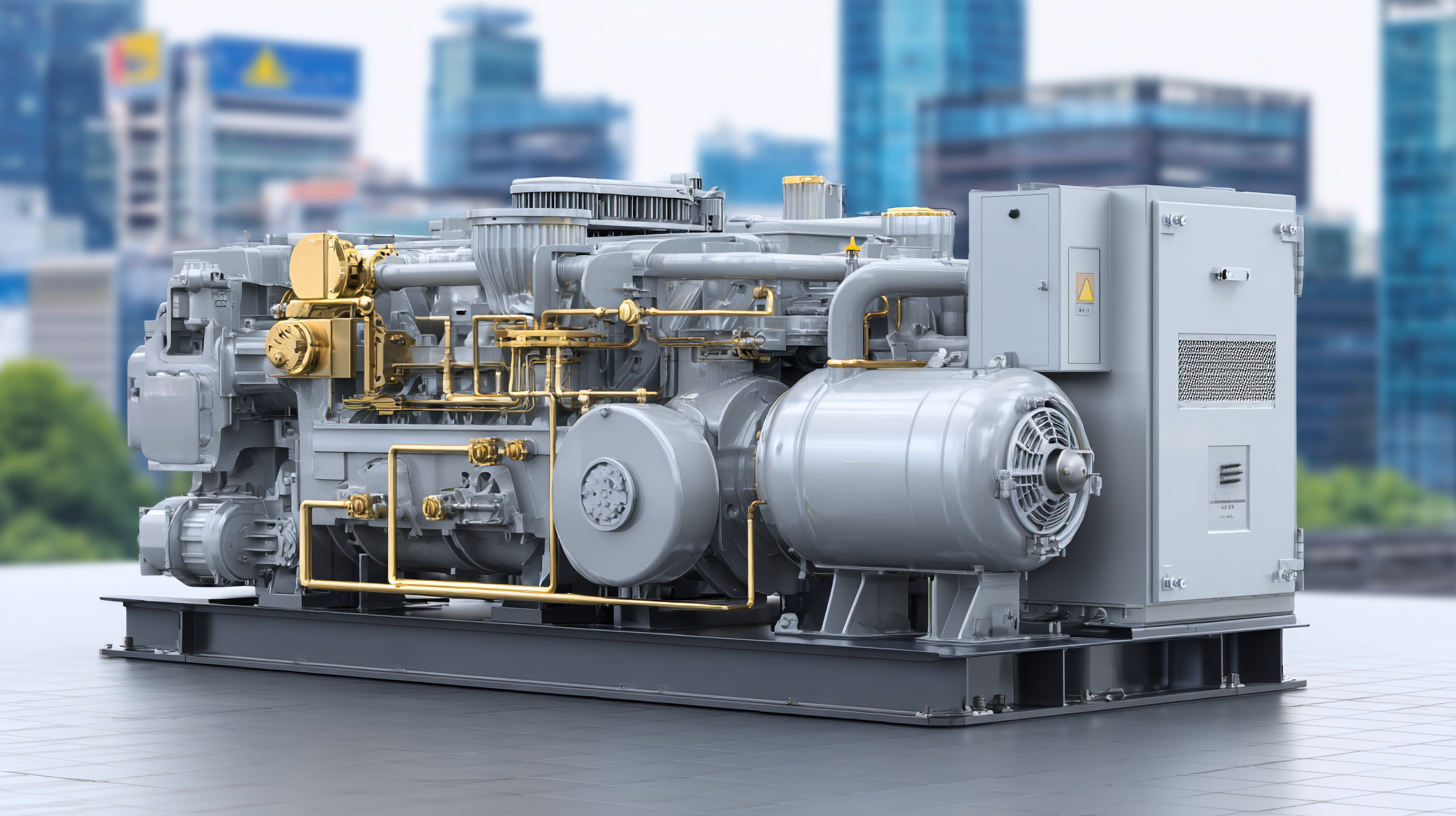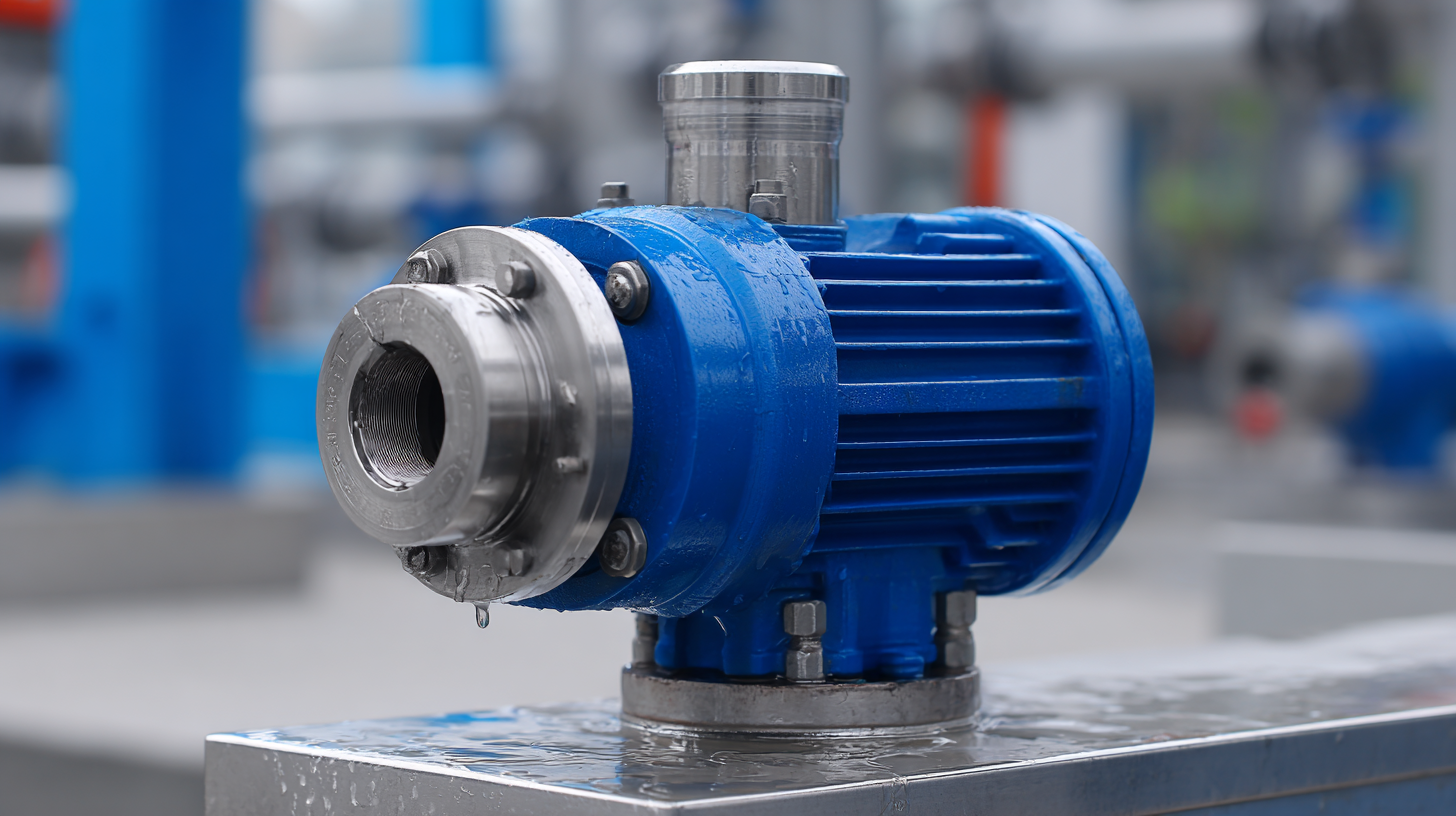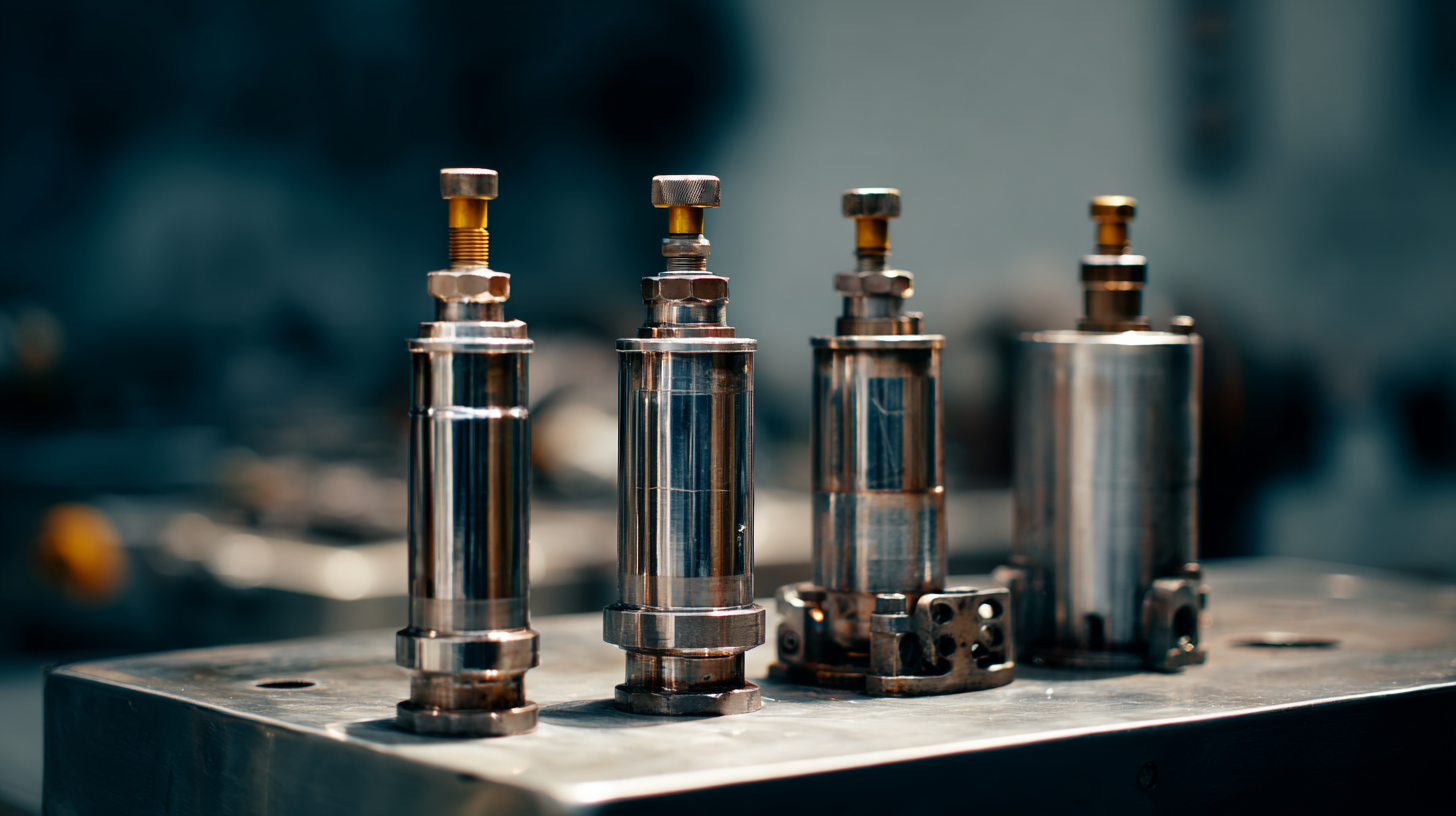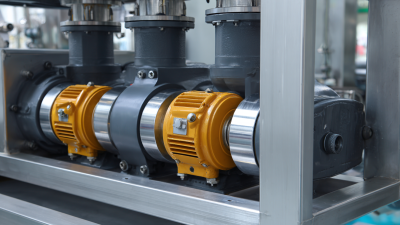- Eng
- Deu
- Fra
What is Vacuum Pump Oil? Understanding Its Types, Uses, and Importance in Industrial Applications
 In the realm of industrial operations, vacuum pump oil plays a pivotal role in ensuring the efficiency and longevity of vacuum systems. As industries increasingly demand higher performance and reliability, understanding the types, uses, and significance of vacuum pump oil has become essential. According to a recent report by Grand View Research, the global vacuum pump market is projected to reach $3.45 billion by 2025, with a substantial portion of this growth directly attributable to advancements in vacuum pump oil formulations that enhance operational stability and reduce maintenance costs.
In the realm of industrial operations, vacuum pump oil plays a pivotal role in ensuring the efficiency and longevity of vacuum systems. As industries increasingly demand higher performance and reliability, understanding the types, uses, and significance of vacuum pump oil has become essential. According to a recent report by Grand View Research, the global vacuum pump market is projected to reach $3.45 billion by 2025, with a substantial portion of this growth directly attributable to advancements in vacuum pump oil formulations that enhance operational stability and reduce maintenance costs.
Experts like Dr. James M. Anderson, a leading authority in lubrication technology, highlight the critical nature of vacuum pump oils in industrial applications. Dr. Anderson once stated, "The choice of vacuum pump oil is crucial not only for system performance but also for the overall cost-effectiveness of industrial processes." His insights underscore the importance of selecting the appropriate vacuum pump oil, which can significantly impact the operational lifespan of vacuum pumps and associated equipment. As businesses continue to navigate the complexities of the industrial landscape, the role of vacuum pump oil remains integral, demanding a thorough understanding of its characteristics and applications.
What is Vacuum Pump Oil and Its Role in Industrial Processes
 Vacuum pump oil plays a critical role in various industrial processes by ensuring the efficient operation of vacuum systems. This specialized oil is designed to minimize friction and wear within the pump, enhancing performance while providing effective sealing properties. By maintaining a consistent viscosity across a range of temperatures, vacuum pump oil helps sustain optimal vacuum levels, which are essential for processes like chemical manufacturing, food packaging, and pharmaceuticals.
Vacuum pump oil plays a critical role in various industrial processes by ensuring the efficient operation of vacuum systems. This specialized oil is designed to minimize friction and wear within the pump, enhancing performance while providing effective sealing properties. By maintaining a consistent viscosity across a range of temperatures, vacuum pump oil helps sustain optimal vacuum levels, which are essential for processes like chemical manufacturing, food packaging, and pharmaceuticals.
The significance of vacuum pump oil extends beyond mere lubrication; it also aids in the removal of contaminants that can compromise the system's integrity. In many industries, the purity of the vacuum is vital to achieving product quality and operational efficiency. Different types of vacuum pump oils are tailored for specific applications, including mineral-based, synthetic, and biodegradable options, each boasting unique properties suited for diverse operating conditions. Understanding these distinctions allows industries to select the appropriate oil, ensuring longevity and reliability in their vacuum systems.
Types of Vacuum Pump Oil: Mineral, Synthetic, and Biodegradable Options
Vacuum pump oil is crucial for the efficient operation of vacuum pumps in various industrial applications. Understanding its types—mineral, synthetic, and biodegradable—helps in selecting the right oil for specific needs. Mineral oils, derived from crude oil, are commonly used due to their good lubricating properties and economic viability. However, they can have limitations in terms of thermal stability and volatility, potentially affecting pump performance under high temperatures or long operating hours.
Synthetic oils, on the other hand, are engineered for enhanced performance. They offer superior thermal stability, lower volatility, and better lubrication at extreme temperatures. This makes them ideal for demanding applications where reliability and longevity are paramount. For businesses aiming for sustainability, biodegradable vacuum pump oils present an eco-friendly alternative. These oils are designed to break down naturally, minimizing environmental impact while still providing effective lubrication and protection for the pump mechanisms. Each type of vacuum pump oil serves a distinct purpose, allowing industries to select the most suitable option based on their operational requirements and environmental considerations.
What is Vacuum Pump Oil? Understanding Its Types, Uses, and Importance in Industrial Applications
| Type of Vacuum Pump Oil | Description | Common Uses | Benefits |
|---|---|---|---|
| Mineral Oil | Derived from refining crude oil, often contains additives. | General industrial applications, maintenance of rotary vane pumps. | Cost-effective, good lubricating properties. |
| Synthetic Oil | Man-made substances designed for high performance. | High-temperature environments, precision vacuum applications. | Superior thermal stability, extended service life. |
| Biodegradable Oil | Eco-friendly oils made from renewable sources. | Applications where environmental concerns are priority. | Reduces environmental impact, safe for accidental spills. |
Key Applications of Vacuum Pump Oil in Various Industries
Vacuum pump oil plays a crucial role across various industrial applications, serving as a lubricant and coolant while creating and maintaining a vacuum. Its importance is particularly evident in sectors such as manufacturing, pharmaceuticals, and laboratories, where the efficiency and reliability of vacuum systems are paramount. In the industrial manufacturing sector, vacuum pump oil is essential for maintaining the optimal performance of machinery, ensuring a consistent process flow and preventing the risk of system failures.

Moreover, in laboratory settings, vacuum pumps equipped with appropriate oils are vital for experiments requiring accurate pressure conditions. The increasing demand for laboratory vacuum pumps is echoed in market projections, which anticipate significant growth fueled by advancements in technology and rising research activities. As industries continue to expand, the specific requirements for various types of vacuum pump oils will evolve, highlighting the need for tailored solutions that cater to diverse applications while optimizing operational efficiency and sustainability.
Importance of Proper Maintenance and Selection of Vacuum Pump Oil
Proper maintenance and selection of
vacuum pump oil
are crucial for ensuring optimal performance and longevity of vacuum pumps used in various industrial applications. Regular maintenance, similar to that required for refrigerant recovery machines, can significantly enhance the operational efficiency of vacuum systems.
For instance, routine oil changes can help prevent contamination and ensure that the oil maintains its viscous properties, crucial for effective sealing and lubricating of pump components. Studies indicate that equipment failure often arises from neglecting such basic maintenance protocols.
The selection of the appropriate
vacuum pump oil
is also vital for specific applications, such as cannabis processing or laboratory research. Different processes may require oils with distinct properties, such as high thermal stability or low vapor pressure, to prevent unwanted chemical interactions or degradation of the oil itself. Reports show that using the wrong type of oil can lead to mechanical failures or inefficiencies, thereby increasing operational costs. Thus, industries must carefully analyze their requirements and choose oils that align with their processes and equipment specifications, reinforcing the importance of both maintenance and proper oil selection in achieving optimal pump performance.
How to Choose the Right Vacuum Pump Oil for Your Equipment
Choosing the right vacuum pump oil is crucial for ensuring optimal performance and longevity of your equipment. When selecting an oil, consider the specific operational conditions of your vacuum pump, including the temperature range, type of gases being pumped, and the required viscosity. Manufacturers often provide recommendations for compatible oils tailored to their models, which can be a valuable guideline.
In addition to compatibility, pay attention to the oil’s chemical composition and potential effects on the environment. Synthetic oils, for instance, can offer enhanced performance and stability at varying temperatures compared to mineral oils. It’s also important to evaluate the oil's ability to resist oxidation, which can lead to sludge formation and pump damage over time. Regularly checking for oil contamination and understanding its degradation rate will help you maintain the integrity of your vacuum system, ensuring it operates efficiently and effectively.
Related Posts
-

Understanding Waste Pumps How They Work and Their Importance in Modern Waste Management
-

The Impact of Vacuum Blowers on Reducing Environmental Noise Pollution
-

Exploring the Benefits of Tank Vacuum Systems: A Comprehensive Guide for Homeowners
-

Understanding the Future of Energy: How Oil Pumps Power the Transition to Renewable Resources
-

Understanding the Science Behind Rotary Vane Vacuum Pumps for Industrial Applications
-

Exploring Vacuum Oil: Key Benefits and Industry Trends Influencing Machinery Performance
